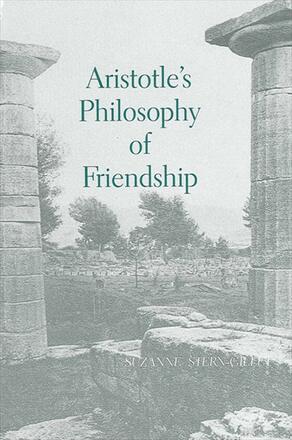
Aristotle's Philosophy of Friendship
Alternative formats available from:
Description
Presents the major issues in Aristotle's writings on Friendship.
Suzanne Stern-Gillet is Professor of Philosophy at the Bolton Institute of Higher Education, England.
Reviews
"Professor Stern-Gillet has taken on the task of explaining how, in Aristotelian terms, a friend can be 'another self. ' Using careful philological and philosophical analysis, she shows that the very concept of a 'self' develops only in the context of determining what (or who) is 'the other'; her analysis reveals that, contrary to standard dogma, Aristotle's ethical theory is not egoistic in character, and that the account of friendship is essential for an understanding not only of the Aristotelian virtues but also of the vexed question of the 'theoretical life. ' " — Anthony Preus
"Suzanne Stern-Gillet addresses major and long-standing problems in Aristotle's treatment of friendship and suggests a plausible way of reconciling them. The connections she makes between Nicomachean Ethics and DeAnima, as well as her contrasts with Homer, Plato, and Descartes are illuminating. She takes an important Aristotelian teaching, goes through the major problems, and comes up with a consistent and coherent account of how it fits together. " — Aristide Tessitore
"The topic of primary friendship (virtue friendship, character friendship) in Aristotle has been in need of a book-length treatment, and in particular of a treatment that goes beyond the obviously relevant texts in Nicomachean Ethics VIII-IX. This book is refreshingly free of presuppositions that would get in the way of understanding Aristotle's thought. It is probing and gets beneath the surface of what Aristotle says. The author approaches Aristotle critically, but with the expectation of finding in Aristotle something philosophically interesting, illuminating, viable. " — Arthur Madigan